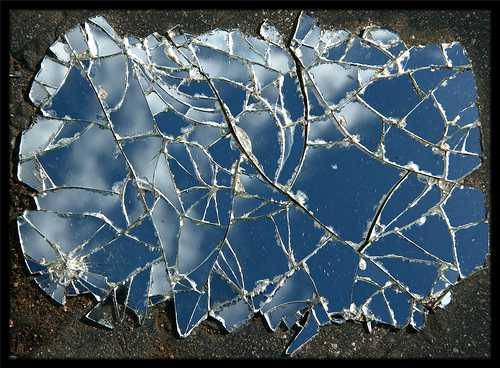FWP:
SETS == I AND; IZAFAT
MIRROR: {8,3}
ABOUT MIRRORS: Usually Ghalib's mirrors are metal, as we learn from Ghalib's
own commentary in {34,2}. The one in this
verse is of course made of glass; for more glass mirrors, in a mirror-chamber,
that nevertheless seem to have polish-marks, see {16,6x}.
What may be another glass mirror (if aabginah is to
be taken as mirror) appears in {192,3}. Mirrors are to be 'broken' in {214,16x} and {348x,2}, so they're presumably made of glass. Another
'image-possessing' mirror like the one in the present verse appears in {228,9}.
Compare also {230,8}, in which the sword of tyranny is an aa))iinah-e
ta.sviir-numaa , a 'picture-showing mirror'-- is that a special kind
of mirror? In {349x,2}, the mirror is apparently striving (in vain) to do something more than merely reflect. Ghalib's mirror is often implicitly a Sufistic 'mirror of the heart'; on this see {128,1}. For a list of 'mirror' verses see {8,3}.
The commentators disagree about this verse-- which isn't surprising, since it's so abstract and enigmatic. Ghalib's 'mirror' verses are often very demanding.
Is the speaker mourning for the images, or for the mirror, or for the 'whole-cityful' of longing? (For more on yak-shahr and other constructions of this kind, see {11,1}.) And does it make sense to mourn for 'longing', anyway? Is it perhaps like mourning for the death of the heart?
The 'you' is the intimate tuu . The tone feels reproachful-- we feel that the beloved broke the mirror on purpose. But of course, the verse doesn't say so, and the verse might merely be offering neutral reportage. Metaphorically, the heart as a mirror is a trope that goes far back in Persian and Urdu poetry (on this see {128,1}). And what could be more natural than for the beloved to break the lover's heart, as Bekhud Mohani suggests?
There's also the nice complexity of being unable to decide whether the mourning is 'for' a whole-cityful of longing, or is done 'with' or 'by means of' a whole-cityful of longing. Needless to say, this makes a range of interpretations available. For another such complex use of the i.zaafat construction see {16,1}.
Compare a very different (and uncharacteristically playful) yak-shahr verse by Mir: M{1079,6}. And for the grief and reproach in the second line, compare M{468,2}. Here's Mir's take on the beloved's deliberate breaking of the mirror: M{1779,13}.

Nazm:
The rule is that in a mirror only one image can be seen, but when you break it, in every single fragment the same whole image begins to appear. And here, seeing every single reflection, my heart bleeds for every single longing. The gist is that when the mirror that reflected the glory/appearance of the beloved broke, enough blood for 'a cityful of longing' was shed.... 'A cityful of longing' has the same kind of structure as 'a desertful of fatigue' [in {11,1}] or 'a stepful of madness' [in {18,2}]. (17)
== Nazm page 17